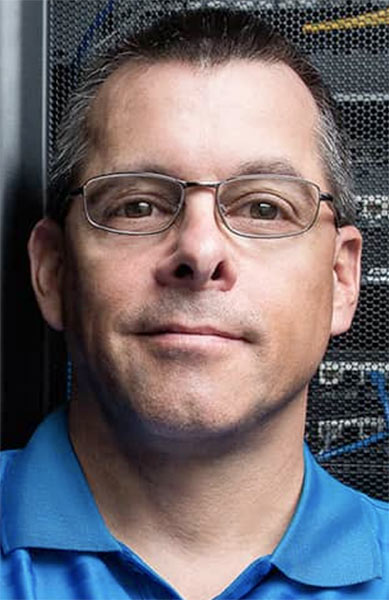

DNS Security |
Sponsored by |

|
For more than 15 years, the IETF has been working on DNSSEC, a set of extensions to apply digital signatures to DNS. Millions of dollars in government grants and several reboots from scratch later, DNSSEC is just starting to see real world testing. And that testing is minimal -- only about 400 of the more than 85,000,000 .com domains support DNSSEC, fewer than 20% of US government agencies met their mandated December 31, 2009 deadline for DNSSEC deployment, and only two of the thirteen root zone name servers is testing with even dummy DNSSEC data. more
 Registrars have the opportunity to fundamentally change the landscape of the Internet's security infrastructure by working to close the DNSSEC functionality gap. Virtually everything every Internet user does on the Internet depends on the DNS. DNSSEC is not just about protecting the DNS, it is about building a secure infrastructure foundation upon which new and innovative services and applications can be built to benefit us all. Registrars are the linchpins to advancing the deployment of DNSSEC. more
Registrars have the opportunity to fundamentally change the landscape of the Internet's security infrastructure by working to close the DNSSEC functionality gap. Virtually everything every Internet user does on the Internet depends on the DNS. DNSSEC is not just about protecting the DNS, it is about building a secure infrastructure foundation upon which new and innovative services and applications can be built to benefit us all. Registrars are the linchpins to advancing the deployment of DNSSEC. more
 The DNSSEC Industry Coalition conducted its first face to face meeting on Friday, March 13, 2009 at Google's Washington, DC office. Google's fun filled meeting room was packed with organizations that share a keen interest in DNS Security through the implementation of DNSSEC. more
The DNSSEC Industry Coalition conducted its first face to face meeting on Friday, March 13, 2009 at Google's Washington, DC office. Google's fun filled meeting room was packed with organizations that share a keen interest in DNS Security through the implementation of DNSSEC. more
 The DNS is normally a relatively open protocol that smears its data (which is your data and mine too!) far and wide. Little wonder that the DNS is used in many ways, not just as a mundane name resolution protocol, but as a data channel for surveillance and as a common means of implementing various forms of content access control. But all this is poised to change. more
The DNS is normally a relatively open protocol that smears its data (which is your data and mine too!) far and wide. Little wonder that the DNS is used in many ways, not just as a mundane name resolution protocol, but as a data channel for surveillance and as a common means of implementing various forms of content access control. But all this is poised to change. more
The Internet Society Deploy360 Programme issues a call for speakers for a series of upcoming global ION Conferences. ISOC welcomes submissions from IPv6 and DNSSEC experts to speak at any of the following ION conferences. more
AWS is introducing Route 53 Accelerated Recovery to help organizations maintain DNS control during regional outages, offering a 60-minute recovery objective and sustained access to key API operations for critical updates and traffic management. more
 July 15, 2010 (yesterday) marked the end of the beginning for DNSSEC, as the DNS root was cryptographically signed. For nearly two decades, security researchers, academics and Internet leaders have worked to develop and deploy Domain Name System Security Extensions (DNSSEC). DNSSEC was developed to improve the overall security of the DNS, a need which was dramatized by the discovery of the Kaminsky bug a few years ago. more
July 15, 2010 (yesterday) marked the end of the beginning for DNSSEC, as the DNS root was cryptographically signed. For nearly two decades, security researchers, academics and Internet leaders have worked to develop and deploy Domain Name System Security Extensions (DNSSEC). DNSSEC was developed to improve the overall security of the DNS, a need which was dramatized by the discovery of the Kaminsky bug a few years ago. more
 In 2019 under the aegis of the Internet Governance Forum, a pilot project was conducted into the causes of and solutions for the, in general, slow deployment of internet security standards. Standards that on mass deployment make the Internet and all its users safer, indiscriminately, immediately... Recently the report 'Setting the standard. For a more Secure and Trustworthy Internet. The Identification of Pressure Points in Society to Speed up Internet Standards Deployment', was published on the IGF website. more
In 2019 under the aegis of the Internet Governance Forum, a pilot project was conducted into the causes of and solutions for the, in general, slow deployment of internet security standards. Standards that on mass deployment make the Internet and all its users safer, indiscriminately, immediately... Recently the report 'Setting the standard. For a more Secure and Trustworthy Internet. The Identification of Pressure Points in Society to Speed up Internet Standards Deployment', was published on the IGF website. more
During the 27th Usenix Security Symposium held in Baltimore, MD last week, a group of researchers from China revealed results obtained from a large-scale analysis DNS interceptions. more
 Keynote speaker, and noted security industry commentator, Bruce Schneier (Co3 Systems ) set the tone for the two days with a discussion on how humans name things and the shortcomings of computers in doing the same. Names require context, he observed, and "computers are really bad at this" because "everything defaults to global." Referring to the potential that new gTLDs could conflict with internal names in installed systems, he commented, "It would be great if we could go back 20 years and say 'Don't do that'," but concluded that policymakers have to work with DNS the way it is today. more
Keynote speaker, and noted security industry commentator, Bruce Schneier (Co3 Systems ) set the tone for the two days with a discussion on how humans name things and the shortcomings of computers in doing the same. Names require context, he observed, and "computers are really bad at this" because "everything defaults to global." Referring to the potential that new gTLDs could conflict with internal names in installed systems, he commented, "It would be great if we could go back 20 years and say 'Don't do that'," but concluded that policymakers have to work with DNS the way it is today. more
 While conventional cyber attacks are evolving at breakneck speed, the world is witnessing the rise of a new generation of political, ideological, religious, terror and destruction motivated "Poli-Cyber™" threats. These are attacks perpetrated or inspired by extremists' groups such as ISIS/Daesh, rogue states, national intelligence services and their proxies. They are breaching organizations and governments daily, and no one is immune. more
While conventional cyber attacks are evolving at breakneck speed, the world is witnessing the rise of a new generation of political, ideological, religious, terror and destruction motivated "Poli-Cyber™" threats. These are attacks perpetrated or inspired by extremists' groups such as ISIS/Daesh, rogue states, national intelligence services and their proxies. They are breaching organizations and governments daily, and no one is immune. more
 As regular readers know, ICANN holds lengthy, in-depth discussions devoted to DNSSEC at each of its three annual meetings. The half-day session held at ICANN 43 in Costa Rica last month was particularly interesting. What became clear is that the industry is quickly moving into the end-user adoption phase of global DNSSEC deployment. more
As regular readers know, ICANN holds lengthy, in-depth discussions devoted to DNSSEC at each of its three annual meetings. The half-day session held at ICANN 43 in Costa Rica last month was particularly interesting. What became clear is that the industry is quickly moving into the end-user adoption phase of global DNSSEC deployment. more
 The ways in which the Internet is embedded in our daily lives are too varied and numerous to catalogue. The Internet delivers information, access to goods, services, education, banking, social interaction and, increasingly, work space. The global pandemic has only heightened our dependence on the online world, which is why efforts to ensure that the Internet remains a trusted and secure environment are more important than ever. more
The ways in which the Internet is embedded in our daily lives are too varied and numerous to catalogue. The Internet delivers information, access to goods, services, education, banking, social interaction and, increasingly, work space. The global pandemic has only heightened our dependence on the online world, which is why efforts to ensure that the Internet remains a trusted and secure environment are more important than ever. more
 It has been about six months since I got together with four of my friends from the DNS world and we co-authored a white paper which explains the technical problems with mandated DNS filtering. The legislation we were responding to was S. 968, also called the PROTECT-IP act, which was introduced this year in the U. S. Senate. By all accounts we can expect a similar U. S. House of Representatives bill soon, so we've written a letter to both the House and Senate, renewing and updating our concerns. more
It has been about six months since I got together with four of my friends from the DNS world and we co-authored a white paper which explains the technical problems with mandated DNS filtering. The legislation we were responding to was S. 968, also called the PROTECT-IP act, which was introduced this year in the U. S. Senate. By all accounts we can expect a similar U. S. House of Representatives bill soon, so we've written a letter to both the House and Senate, renewing and updating our concerns. more
 There has been a lot of criticism about the worthiness of DNSSEC. Low adoption rates and resistance and reluctance by Registrars to take on the perceived burden of signing domains and passing-on cryptographic material are at the crux of the criticism. I'm a believer in DNSSEC as a unique and worthwhile security protocol and as a new platform for innovation. It's the reason I've long advocated for and continue to work toward a new model of DNSSEC provisioning. more
There has been a lot of criticism about the worthiness of DNSSEC. Low adoption rates and resistance and reluctance by Registrars to take on the perceived burden of signing domains and passing-on cryptographic material are at the crux of the criticism. I'm a believer in DNSSEC as a unique and worthwhile security protocol and as a new platform for innovation. It's the reason I've long advocated for and continue to work toward a new model of DNSSEC provisioning. more